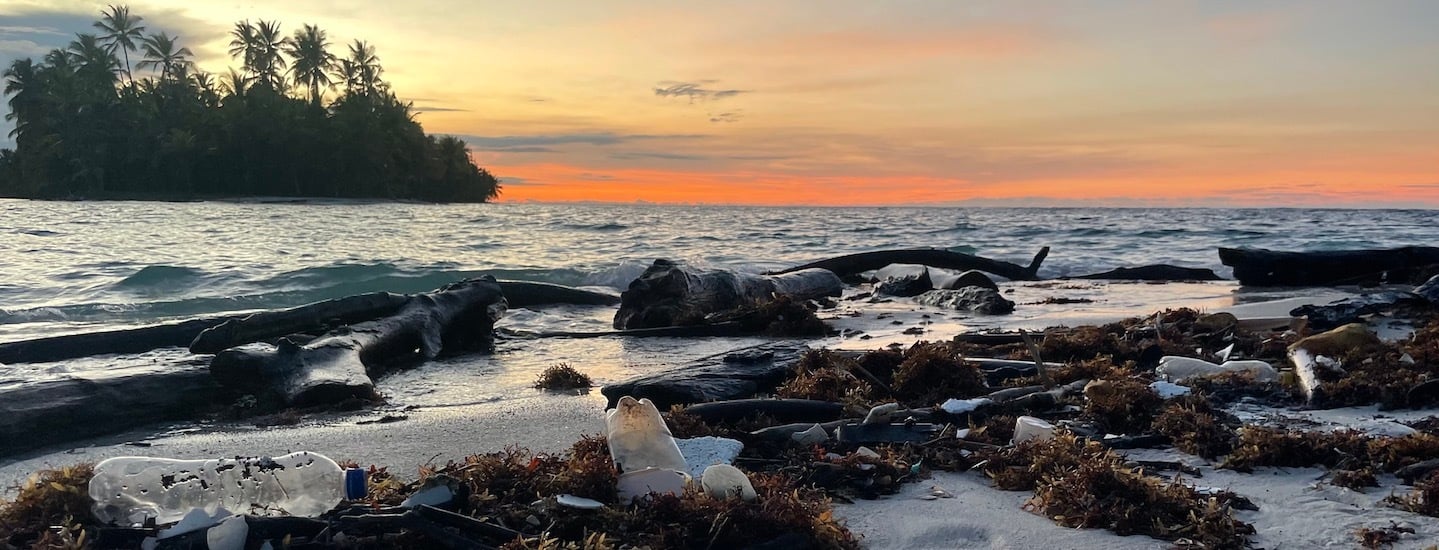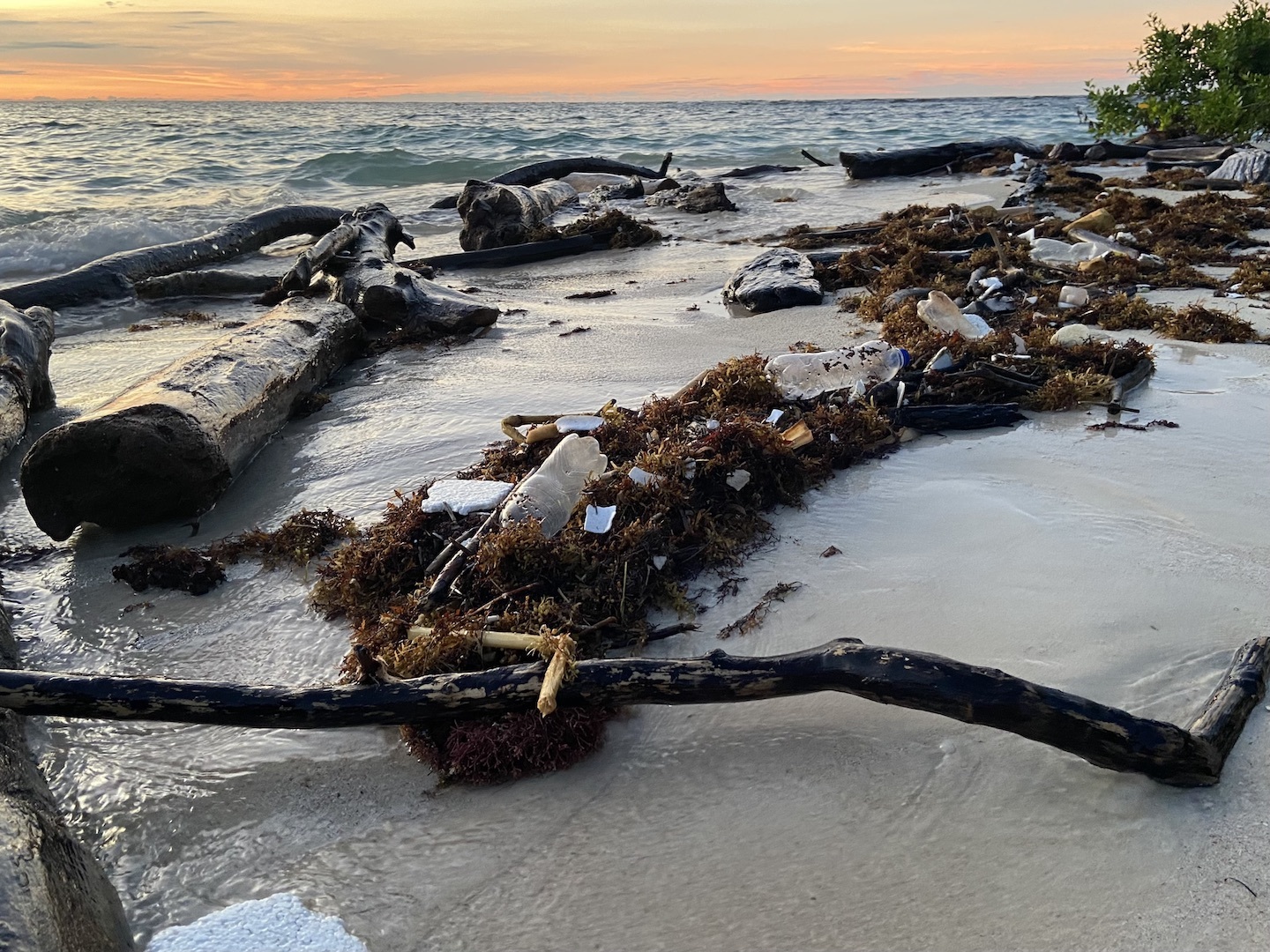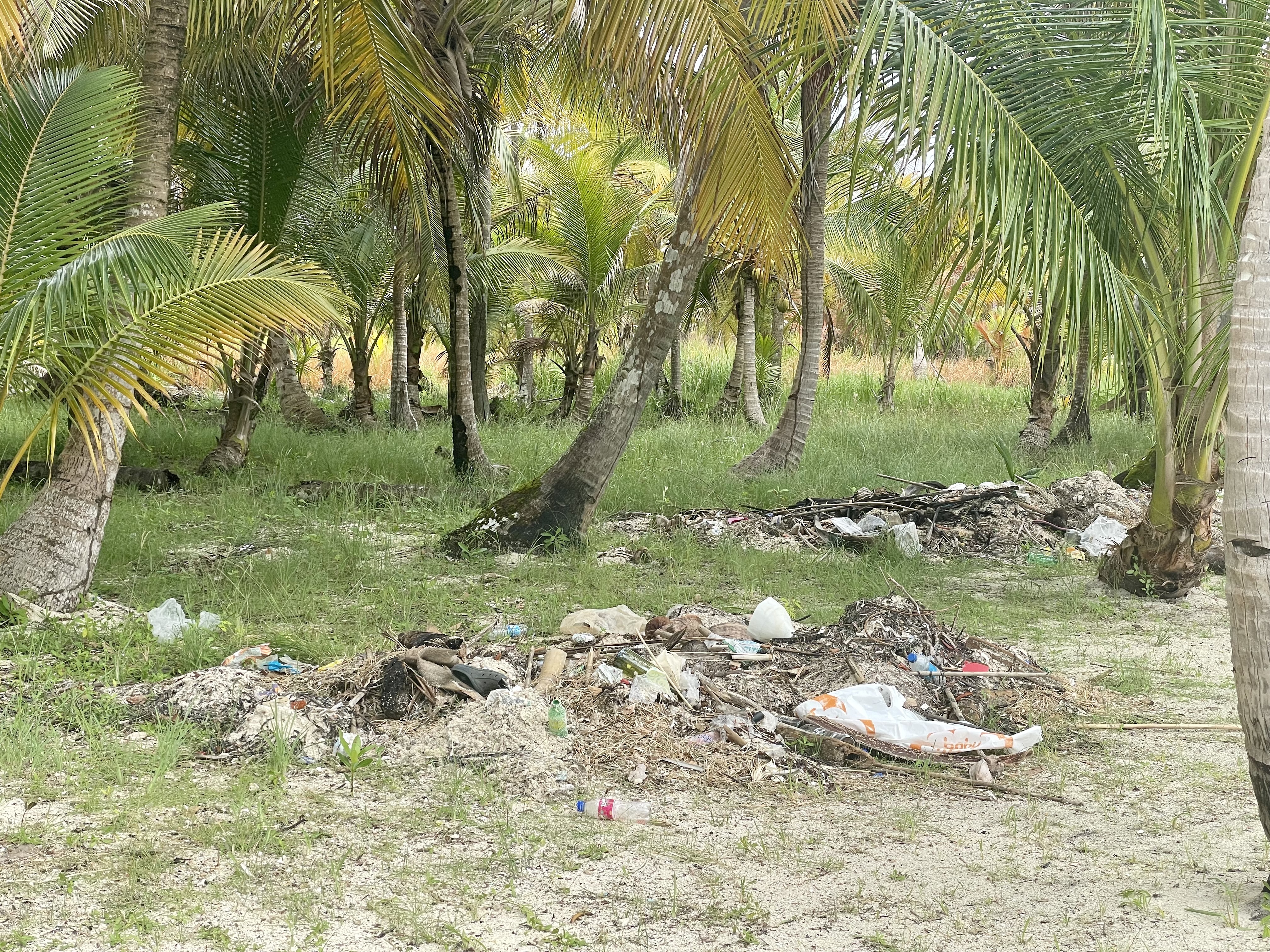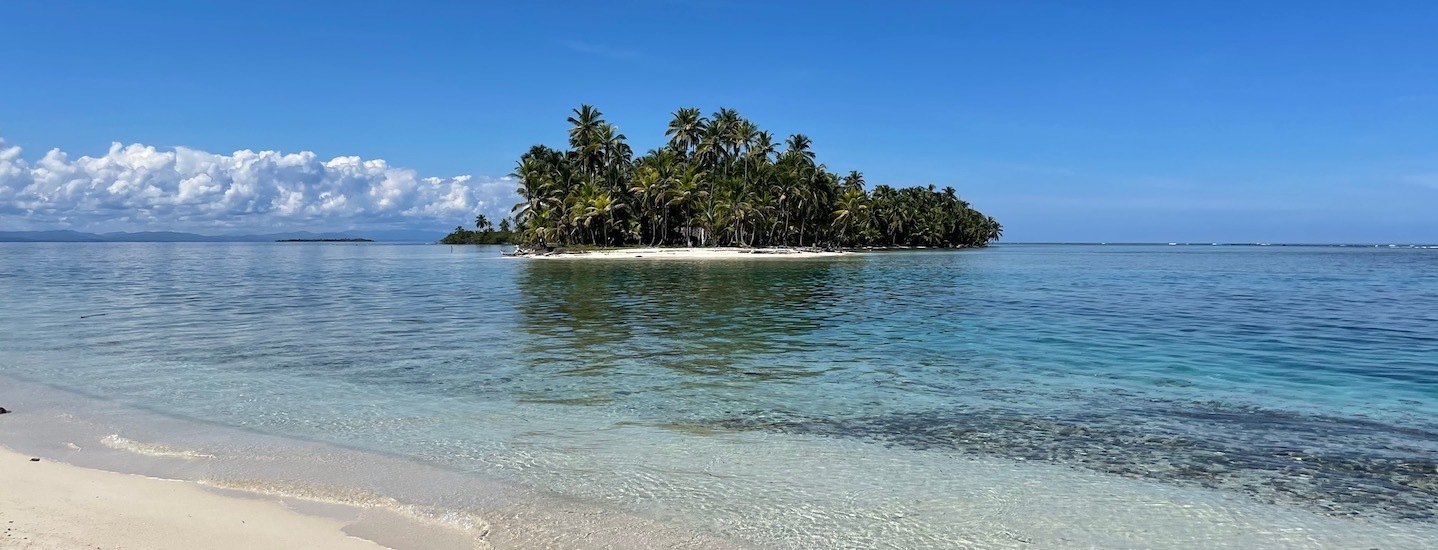
11.18.22
Plastic in Paradise – Solving a Worldwide Trash Problem Requires a Global Solution
By Surfrider HumboldtThe Guna Yala islands off the Panama coast are often described as a tropical paradise. Indeed, below the surface, the sun’s rays light up parrotfish, reef squid and countless other brilliantly colorful creatures swimming among the brain coral and sea fans. Back on the surface, however, plastic trash and polystyrene bob along in the currents, washing up on the region’s nearly 400 islands.
Even if we didn’t have years of science documenting the harm plastic is doing to our planet, seeing plastic trash drifting through the ocean beauty – polystyrene bits looking like coral pieces, plastic wrap waving like seaweed – immediately drives home the sense of harm. Cleaning up what we can is imperative, but without ceasing unnecessary production, the effort is rather like shoveling your sidewalk in the midst of a blizzard with no end in sight.

We’ve known for decades that eliminating plastic pollution at the source works. For example, San Jose, Calif. banned plastic bags in 2012 and saw a dramatic drop in bag litter. A decade prior to that, Ireland's plastic bag tax led to a 95% reduction in plastic bag litter. Panama banned single-use plastic shopping bags in 2019 and, out of the more than 700 pieces of trash we collected in Guna Yala, only two plastic bags were tallied.
Solving the problem of plastic pollution – which plagues islands and coasts all over the world – will require great cooperation on solutions both near- and long-term. During my expedition with Heal the Bay, we spoke with individual Guna residents of the islands. Everyone we talked to agreed the plastic pollution making landfall at their homes requires nonstop effort to manage and solutions must be found. Fortunately, additional efforts in Panama and Guna Yala are underway.

On the global level, the forthcoming United Nations’ plastics treaty agreement is a prime opportunity to implement worldwide change by demanding policies that reduce single-use plastic production, and support reuse and refill markets. Additionally, because plastic production is a major contributor to climate change, any successful efforts to slow global warming must include significant reduction in plastics. This is especially important for island nations and territories, where sea level rise is already an existential threat. Reducing plastic pollution throughout the world will result in improved air quality, cleaner water, a healthier ocean, a stronger economy and a safer world for all of us. The practice of out of sight, out of mind must shift to more thoughtful ways of co-existing with our downstream neighbors, no matter how far away they may be.

Further reading
